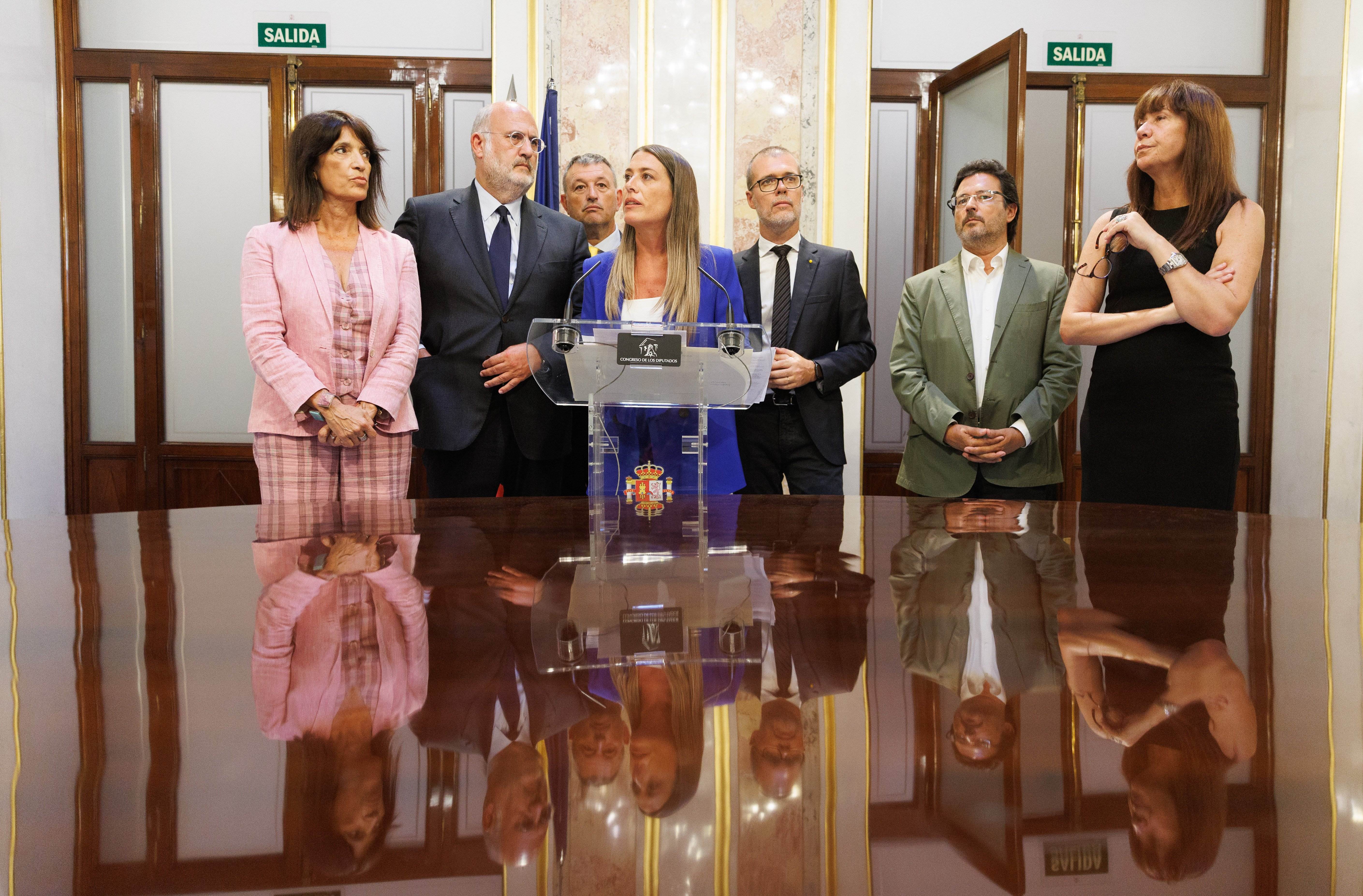Gestures take shape and turn into actions. The pro-independence party Together for Catalonia (Junts) will have its own group in the Congress of Deputies during the fifteenth Spanish legislature. And this will be possible thanks to the temporary assignment of no less than four deputies from the Catalan Socialist Party (PSC), which will allow Junts to meet the requirements specified in the regulations. A day before the deadline, parliamentary sources have confirmed, Junts has registered its own parliamentary group in the lower house this Thursday at noon, which will bring it significant economic income and increased parliamentary prominence. The other Catalan pro-independence party in Congress, the Republican Left (ERC) did three-quarters of the same thing this afternoon, after Sumar lent them two parliamentarians. The governing body of Congress, the Bureau, with its progressive majority, will have to ratify these steps on Monday.
The PSC has allowed four MPs to temporarily become part of Carles Puigdemont's party so that the pro-independence political force can reach the threshold of 15% of the votes in Catalonia as a whole. The Socialist members who have been registered in the Junts group are two from Tarragona (Andreu Martín and Valle Mellado) and two from Girona (Blanca Cercas and Marc Lamuà). Once the group is constituted, the loaned deputies can return to their parliamentary fold without any risk of the groups just created being dissolved. In the last general election on 23rd July, Junts obtained 11.1% of the votes as an average across the four constituencies in which it stood, the four into which Catalonia is divided. Although they exceeded the 15% barrier in Girona (19.6%) and Lleida (18.04%), the percentages reached in Tarragona (11.08%) and Barcelona (9.68%) were below the minimum mark.
According to the rules of Congress, to have a group of one's own a party must obtain either 15 deputies or 5% of the votes in the whole Spanish state - two requirements which Junts is very distant from - or, thirdly, it has to obtain at least five deputies in total plus at least 15% of all the votes in the constituencies where it was on the ballot. The parties involved have calculated the loaning of MPs in order to satisfy the conditions of this third option, noting that that there are similar precedents in the chamber and rulings from the Constitutional Court that have validated the approach.
Sumar lends two seats to ERC
Similarly, ERC also registered its own group after reaching an agreement with Sumar. Yolanda Díaz's party yielded two parliamentarians to the Republicans: one in Tarragona (Fèlix Alonso) and another in Girona (Júlia Boada). After this, a calculation that re-shares the votes proportionately shows that ERC exceeds 15% of the total votes in Catalonia. On July 23rd, Gabriel Rufián's got 13.1% of Catalan votes cast, and passed the threshold in two constituencies: Lleida (18.6%) and Tarragona (15.07%), while failing to do so in Barcelona (12.3%) and Girona (14.74%).
The advantages of having your own group: more money, greater participation
For a party in the Spanish Congress, having one's own parliamentary group provides a cluster of advantages which can be summed up in terms of additional resources and greater parliamentary visibility. In economic terms, it means a fixed subsidy of 30,346.72 euros per month and a variable subsidy of 1,746.16 euros per month for each deputy. On the political side, having your own group means, among other benefits, having more speaking time in debates, being able to seek answers from the government at each parliamentary question session, and more ability to introduce legislative initiatives. Without their own group, Junts and ERC would be part of the so-called Mixed Group, along with other smaller parties, who all have to share speaking time equally and have more limited powers of questioning the executive and presenting texts to the chamber.

